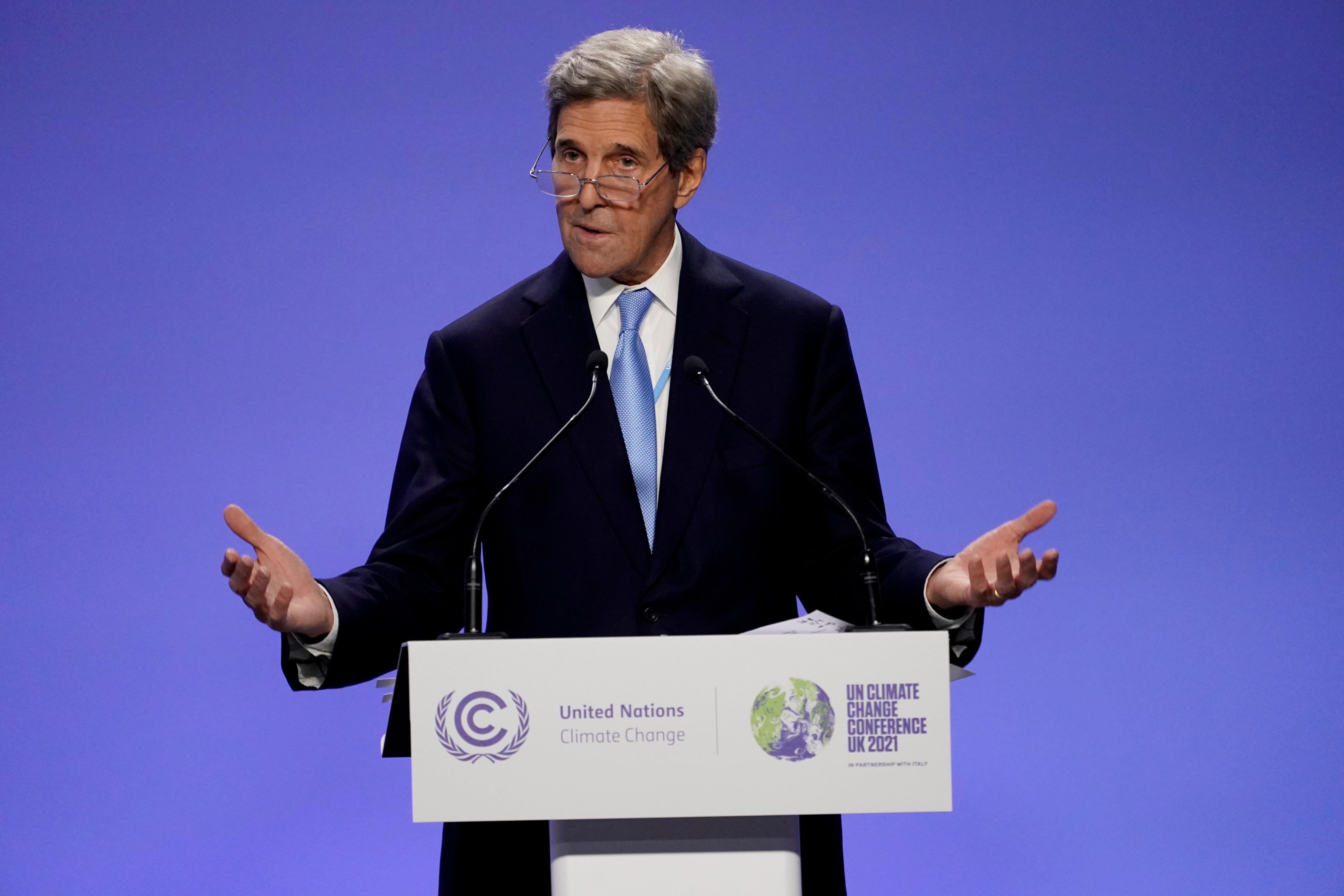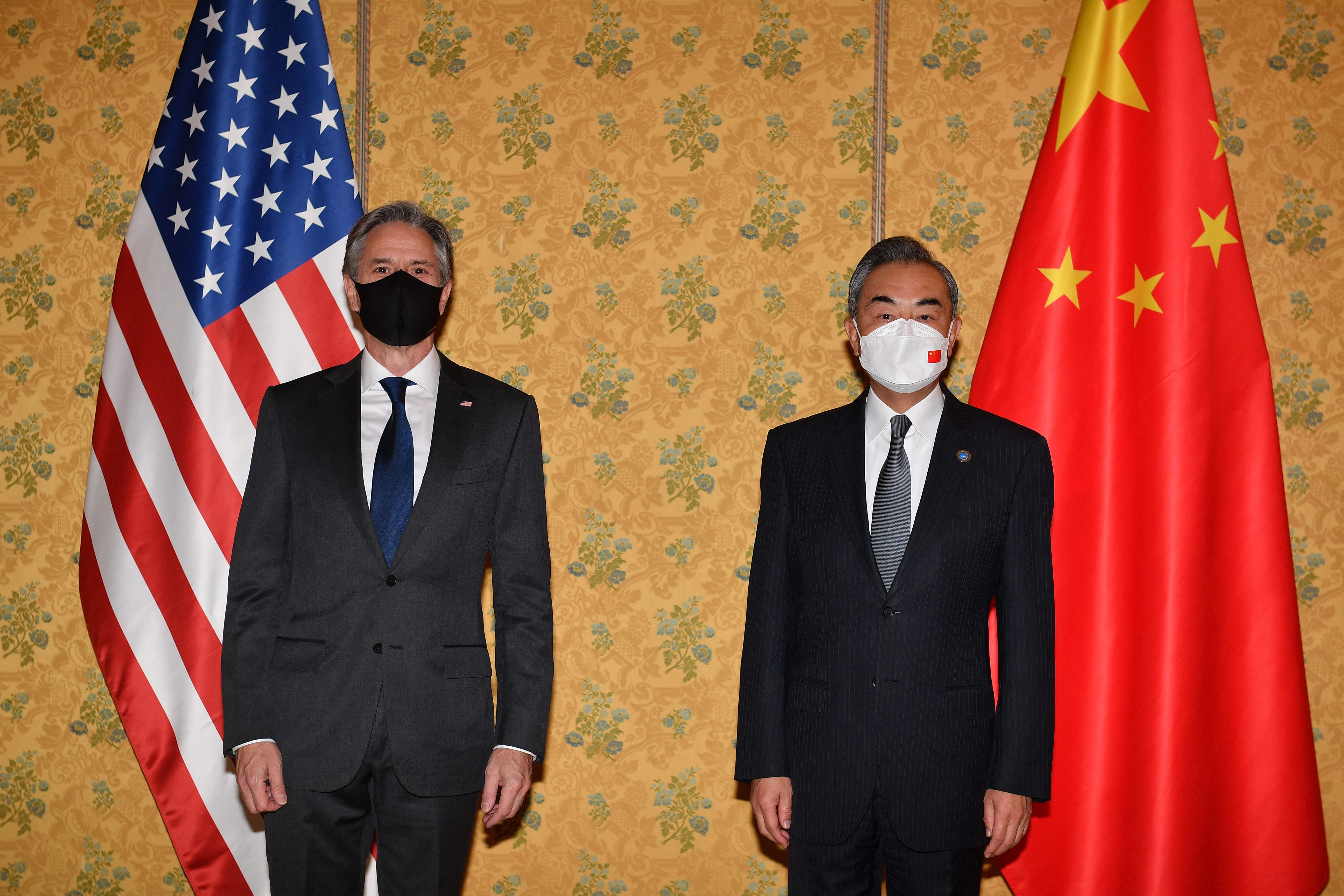US-China climate deal offers hope but meaningful thaw in relations remains elusive
Surprise agreement at Cop26 is a pragmatic manoeuvre by the superpowers, but their icy relationship will not defrost anytime soon, writes Ahmed Aboudouh


When US climate envoy John Kerry made his second visit to China in September, he was given the cold shoulder. Some observers even went far as to say that the Taliban received a better reception in the country earlier this year.
Kerry was only offered virtual meetings with Chinese officials, who made it clear that cooperation on climate change would not happen if the US didn’t tame its hostility following scrutiny from Washington over China’s military harassment of Taiwan, clampdown on democracy in Hong Kong, and persecution of Uyghur Muslims in Xinjiang.
Yet on Wednesday, China and the US signed a joint declaration at the Cop26 summit to accelerate measures to tackle the climate crisis - an unexpected announcement that caught the world off-guard.
The pact offers a glimpse of hope that the damaged relationship between the world’s two largest economies may not yet be terminal. It was agreed just a week before a virtual summit between Presidents Joe Biden and Xi Jinping,
The declaration took foreign diplomats and experts by surprise, as it stood at odds with a war of words over President Xi’s no-show that has dominated the two countries’ exchanges since the start of Cop26 in Glasgow, Scotland.
The pact includes commitments by the two sides to cooperate closely on cutting greenhouse gas emissions in the next decade, seen as a significant push towards reaching the 1.5C goal. It will include working on cutting methane and other emissions across different economic sectors to reach the goals of the 2015 Paris Agreement.
This comes weeks after China’s pledge to stop funding coal projects abroad, seen as a breakthrough and a culmination of US pressure since a similar joint declaration in April in which both sides pledged to work together to uphold the terms of the Paris Agreement.
“Both (countries) recognise the urgency of the climate crisis in the declaration and that cooperation is inevitable between the two largest emitters. This now needs to be reflected in the final days of negotiations in Glasgow and in the cover decision text,” said Belinda Schäpe, a climate diplomacy researcher at E3G, a European think tank.
“The declaration shows that both are willing to decouple climate from other bilateral issues, given the seriousness of the climate crisis. It is in both self-interest to make progress on tackling the climate crisis,” Schäpe told The Independent.
Despite the deal, analysts say Cop26 is a textbook example of how the two superpowers have completely contrasting views on managing their differences.
The Biden administration doesn’t seek regime change in China, US Secretary of State Antony Blinken said in a TV interview earlier this month. But, on Thursday he vowed to take action in the event of a Chinese invasion of Taiwan.
On the issue of climate change, however, Washington has used more reconciliatory language.
US policy is to compartmentalise contentious issues with China from areas of collaboration, and deal with them separately as part of a cooperation, competition and confrontation approach. Blinken once described the relationship as “competitive when it should be, collaborative when it can be and adversarial when it must be.”

Chinese leaders refute the American portrayal of bilateral relations as “competitive” and instead want to link discussions across all areas. Beijing believes that its strategy of forcing sweeping talks across all aspects could nudge the US towards a diplomatic ceasefire on issues Chinese leaders see as extremely sensitive.
But the climate joint declaration, just like the recent pledge on overseas coal projects, signals that China would be willing to compromise on issues where it sees eye to eye with the US. It is also an initial diplomatic success and a sign the Biden administration still holding the upper hand in setting the “cooperation vs competition” agenda.
“From the US government perspective, the US has not changed its position on any of the fundamental issues China sees as critical – Taiwan, Hong Kong, Xinjiang and Tibet,” said Yun Sun, director of the China Program at the Stimson Center, a US think tank.
“Nothing has fundamentally changed - trade tariffs remain, and the US approach to security issues remains highly competitive.”
But the White House is haunted by disunity, as senior aides putting pressure on China is the only viable way to maintain support in Congress and with a public growing weary of China’s more assertive global aspirations.
Other senior officials advocate for a softer approach and focus on consensual areas, such as climate change.
Analysts say the conflicting views at the top create loopholes in Washington’s strategy.
“The inability to have one voice on China evidently hurts the US effectiveness,” Yun Sun notes.
Partnering with China on climate change, however, has always enjoyed sweeping support across the administration and, ironically, among President Xi’s closest comrades.
For example, both nations agree on lending support to developing nations to fight climate change more effectively. They also have a consensus on cutting greenhouse gas emissions and phasing out the use of coal.
China, on the other hand, sees the US policy as inconsistent and one that doesn’t serve its own strategy.
Ultimately, the divergence between the two countries on most issues aside from climate makes a meaningful thaw unlikely in the near future.
“I don’t think this cooperative approach will be replicable in other more contentious areas,” Schäpe said. “ To ease overall tensions between the US and China, a lot more will be needed.”






Join our commenting forum
Join thought-provoking conversations, follow other Independent readers and see their replies
Comments